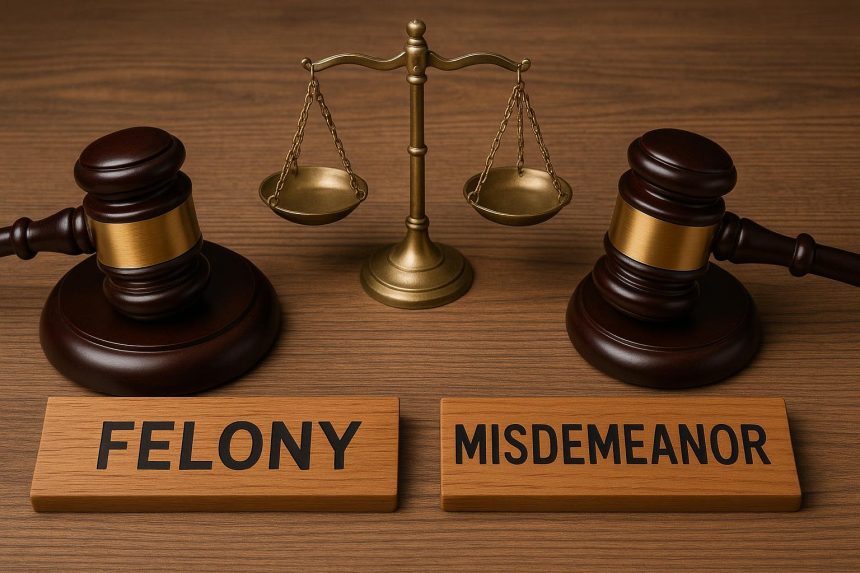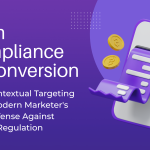Understanding the distinction between felonies and misdemeanors is essential for anyone involved in the criminal justice system or facing criminal charges. These two categories of crimes differ in terms of severity, potential penalties, and the long-term consequences for those convicted. Knowing the differences can help individuals navigate the legal process more effectively and make informed decisions.
1. Definition of Felonies
Felonies are the most serious types of criminal offenses. They typically involve severe harm or threat to individuals, property, or society. Examples of felonies include:
- Murder or manslaughter
- Rape or sexual assault
- Armed robbery
- Kidnapping
- Large-scale drug trafficking
Felonies are usually punishable by more than one year in state or federal prison. In some cases, certain felonies can carry life sentences or even the death penalty, depending on the jurisdiction and severity of the crime.
2. Definition of Misdemeanors
Misdemeanors are less severe offenses that typically result in shorter jail terms, fines, or probation. Examples of misdemeanors include:
- Petty theft or shoplifting
- Simple assault
- Vandalism or property damage
- Driving under the influence (DUI) in some cases
- Disorderly conduct
Misdemeanors are generally punishable by less than one year in county jail, community service, probation, or fines. While misdemeanors are less serious than felonies, they can still carry long-term consequences, such as a permanent criminal record or difficulties finding employment.
3. Differences in Legal Process
The legal process for felonies and misdemeanors also differs in several key ways:
- Arraignment and Preliminary Hearings: Felony cases often require a preliminary hearing to determine if there is enough evidence to proceed to trial, whereas misdemeanor cases usually proceed directly to arraignment.
- Trial Process: Felonies may involve more complex trials with longer proceedings, more witnesses, and stricter evidentiary standards. Misdemeanor trials are typically shorter and less formal.
- Right to Jury Trial: In many jurisdictions, defendants charged with felonies have a constitutional right to a jury trial. Some misdemeanor cases may be resolved by a judge without a jury.
4. Sentencing Differences
Sentencing for felonies and misdemeanors varies significantly:
- Felonies: Convictions can result in long-term imprisonment, substantial fines, parole, probation, or even capital punishment in extreme cases. Felony convictions often lead to additional consequences, such as loss of voting rights, difficulty securing professional licenses, and restrictions on firearm ownership.
- Misdemeanors: Sentences usually involve shorter jail terms, smaller fines, community service, probation, or mandatory counseling programs. While less severe than felonies, misdemeanor convictions can still impact employment opportunities, travel, and housing.
5. Classification and Grading
Both felonies and misdemeanors are often divided into classes or degrees based on severity. For example:
- Felonies: Class A, B, or C, with Class A being the most serious
- Misdemeanors: Class 1, 2, or 3, with Class 1 being the most serious
These classifications help determine sentencing guidelines and the potential consequences for each type of crime.
6. Long-Term Consequences
Beyond immediate penalties, both felonies and misdemeanors can have lasting effects:
- Felonies: Individuals with felony convictions may face difficulties in obtaining employment, housing, or government benefits. Felonies can also carry social stigma and limit certain civil rights.
- Misdemeanors: While less severe, misdemeanors can still impact professional licensing, job prospects, and background checks. Multiple misdemeanor convictions can sometimes elevate future offenses to felony charges.
7. Importance of Legal Representation
Because of the serious consequences associated with both felonies and misdemeanors, it is crucial to seek legal representation if you are facing criminal charges. A skilled attorney can:
- Explain the charges and potential penalties
- Advise on plea options or diversion programs
- Represent you in court proceedings and trials
- Negotiate for reduced charges or alternative sentencing
An experienced defense attorney can make a significant difference in the outcome of your case and help protect your rights throughout the legal process.
Conclusion
Felonies and misdemeanors differ in terms of severity, potential penalties, and long-term consequences. Felonies are more serious offenses with harsher punishments, while misdemeanors are less severe but still carry meaningful legal and social implications. Understanding these differences is essential for anyone facing criminal charges or seeking to navigate the criminal justice system.
If you are dealing with criminal charges, consulting an experienced attorney is crucial. The Law Office of Robert R. Castro provides knowledgeable legal guidance and representation to help individuals understand their options, protect their rights, and achieve the best possible outcome.
Lynn Martelli is an editor at Readability. She received her MFA in Creative Writing from Antioch University and has worked as an editor for over 10 years. Lynn has edited a wide variety of books, including fiction, non-fiction, memoirs, and more. In her free time, Lynn enjoys reading, writing, and spending time with her family and friends.















